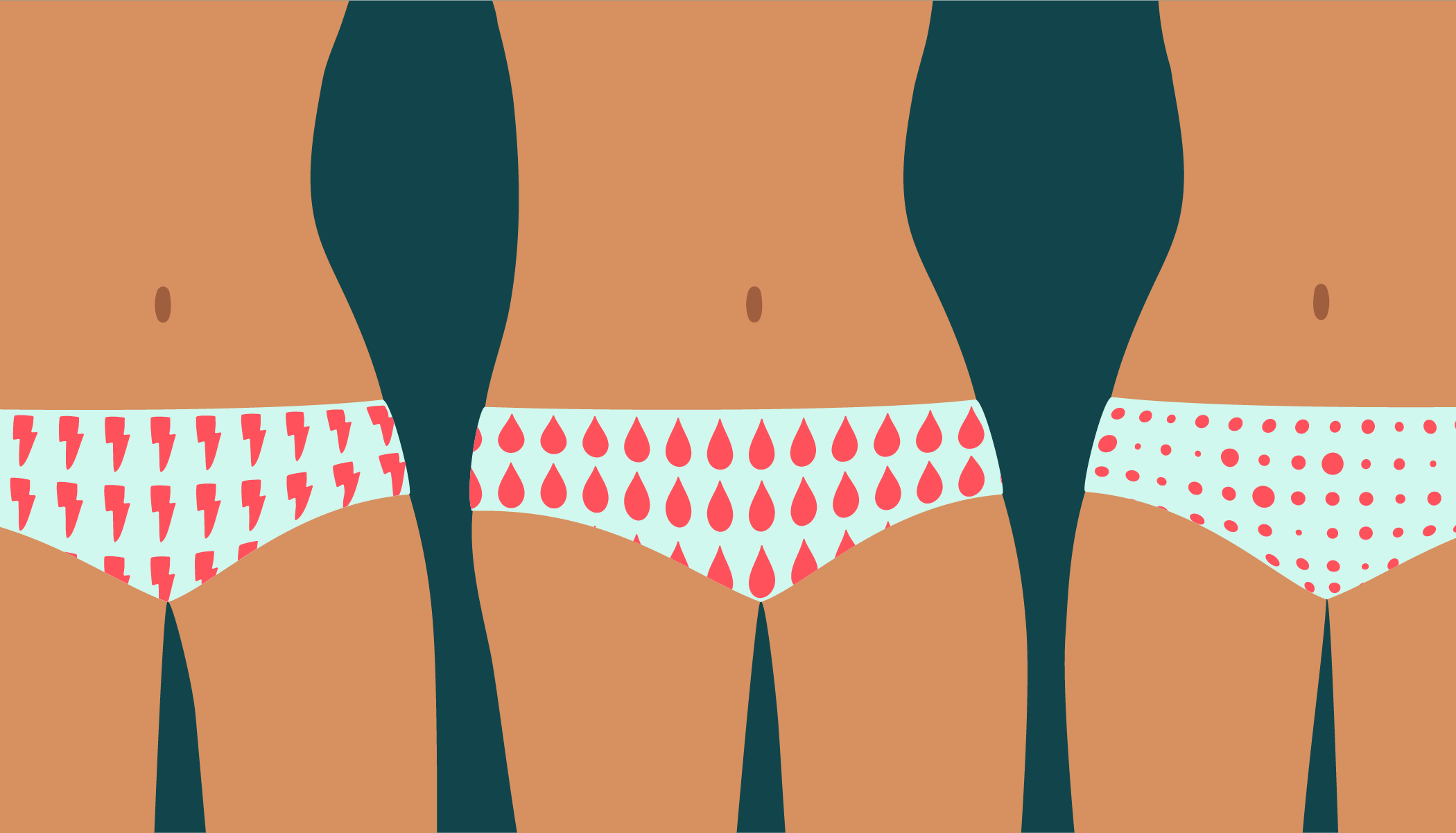Quick facts
- Heavy periods are a common cause of iron deficiency and anaemia
- Excessive dieting and exercise can cause irregular or absent periods, known as amenorrhea
- Irregular periods may be a sign an underlying condition so it’s best to talk to a doctor
Some women have heavy periods, while others have quite light periods, and as a general rule, every woman’s menstrual cycle and periods are individual. But sometimes heavy bleeding or problem periods are a symptom of something more serious. In fact, painful, irregular or heavy periods affect up to 14 percent of women in their childbearing years.
What is a period, anyway?
In simple terms, a period is your body’s way of saying you might be able to have a baby, but you have not conceived. Every month, the lining of the womb thickens in readiness for a fertilised egg, and if an embryo has not latched on to this lining, it’s shed as a period.
This monthly cycle is driven by changes in levels of the hormones oestrogen and progesterone, so anything which affects these hormones can also affect periods.
Dr Rhianna McClymont explains how lifestyle and age can influence your menstrual cycle and when you should speak to a doctor about any concerns.
Is it normal to miss a period?
‘It’s quite normal to get variations in periods when you first start menstruating,’ says Dr McClymont. ‘Also, as your periods are ending in the lead-up to menopause, changes both in cycle length and blood loss can continue for many months, or even years.’
Depending on a woman’s age, the most obvious reasons for periods to stop altogether are pregnancy and menopause. But other causes of irregular periods, or periods stopping completely, which is known as amenorrhea are:
- Sudden weight loss
- Being over- or underweight
- Doing too much exercise
- Stress
- Some contraceptives, such as the progesterone-only pill or intrauterine system (IUS)
Sometimes an irregular period is a sign of something more serious, like polycystic ovary syndrome (PCOS) or a thyroid problem.
When is a period too heavy?
Heavy periods are common, and some women experience heavy periods with clots. Very heavy periods disrupt day-to-day life and can be physically and emotionally challenging. The definition of menorrhagia, as it is known, is losing 80ml — around 16 teaspoons, or more in each period, having periods that last longer than 7 days, or both.
Unless you use a menstrual cup, you may not be sure how much blood loss is too much. Other signs that your periods may be too heavy are:
- Having to change your sanitary products every couple of hours
- Having to empty your menstrual cup more often than recommended in order to prevent leaks
- Passing blood clots that are bigger than 2.5cm — around the size of a 10p coin
- Having to use more than one sanitary product at the same time
- Bleeding through to your clothes or bedding
- Having to get up in the night to change sanitary products, or empty your menstrual cup
Heavy periods are a common cause of iron deficiency too. In the UK, 1 in 4 women has iron levels below recommended levels and the World Health Organization estimates that across Europe 22.6% of women of child-bearing age are anaemic. Signs you may need to have your iron levels tested include tiredness, breathlessness and heart palpitations.
Some medical problems can also cause heavy periods. ‘Conditions which affect the lining of the womb, like fibroids, endometriosis or polyps, can cause bleeds to be heavier,’ says Dr McClymont. Other potential causes are:
- An underactive thyroid
- Clotting problems such as Von Willebrand disease
- Diabetes
- Copper intrauterine devices (IUDs)
- Anticoagulant medicines, like warfarin
- Herbal supplements, including ginseng, ginkgo and soya
If your periods are heavy, it’s a good idea to speak to your GP to rule out any underlying health problems and check you are not anaemic. Treatment options may include:
- A combined or progesterone-based oral contraceptive
- An IUS which releases progesterone
- A procedure to remove the lining of the womb
- Procedures to reduce or remove fibroids
- Hysterectomy
Is it normal to bleed after sex?
Some, but not all women bleed after having penetrative sex for the first time. This is caused by breaking the hymen, a thin piece of skin which partially covers the vagina. However, this can easily happen before then as a result of using tampons, or horse riding and other sports.
But if bleeding after sex happens regularly, speak to a GP. It could be a sign of:
- Pelvic inflammatory disease (PID)
- Chlamydia and other STIs
- Vaginal dryness, which is more common after menopause
- Cervical erosion
- Cancer of the cervix or vagina
When should I see a doctor?
‘If you notice a change in your menstrual pattern from your “normal” then it is best to have a chat to a GP,’ Dr McClymont advises. ‘For instance, if you’ve always had fairly light bleeds but they have suddenly become heavier, and you’ve started passing clots, you should discuss this with a doctor.
‘Also, if you’ve started bleeding between your periods, bleeding after sex or have bleeding after you’ve gone through the menopause, you need to have a chat with your doctor.’
If you are still going through puberty and your periods have always been a little irregular there is nothing to worry about. But other times to see a doctor are:
- You’re under 45 and your periods have suddenly become irregular
- Your periods are more frequent than every 21 days or come less often than every 35 days
- Periods last longer than 7 days
- There is a difference of at least 20 days between your shortest and longest cycles
- Your periods are erratic and you are trying to get pregnant




